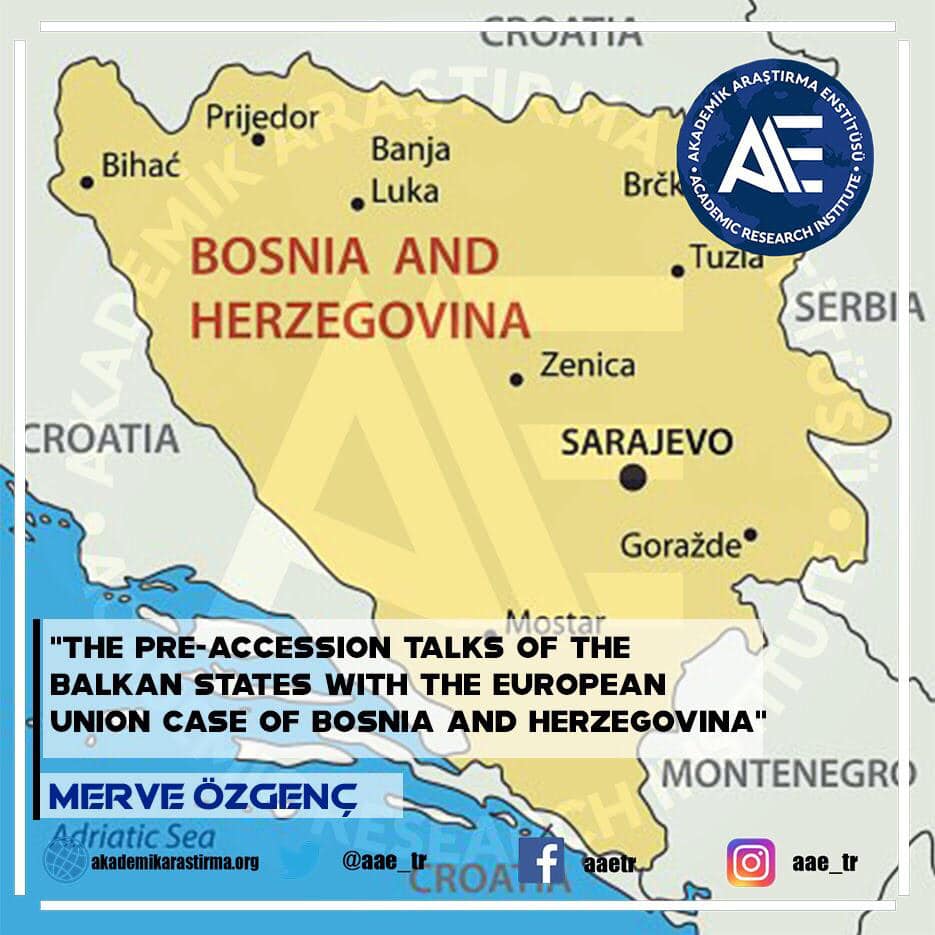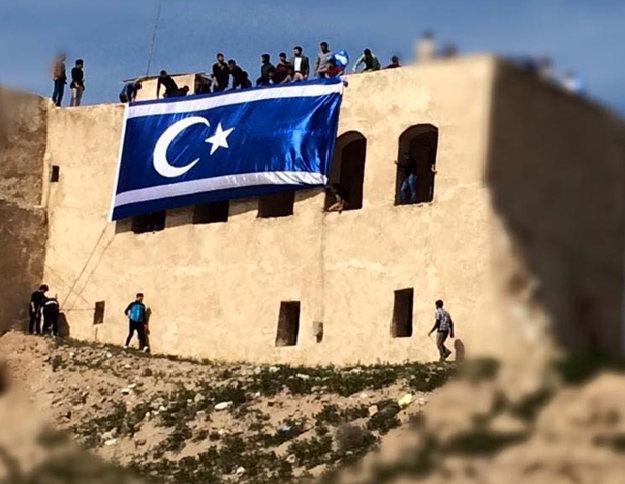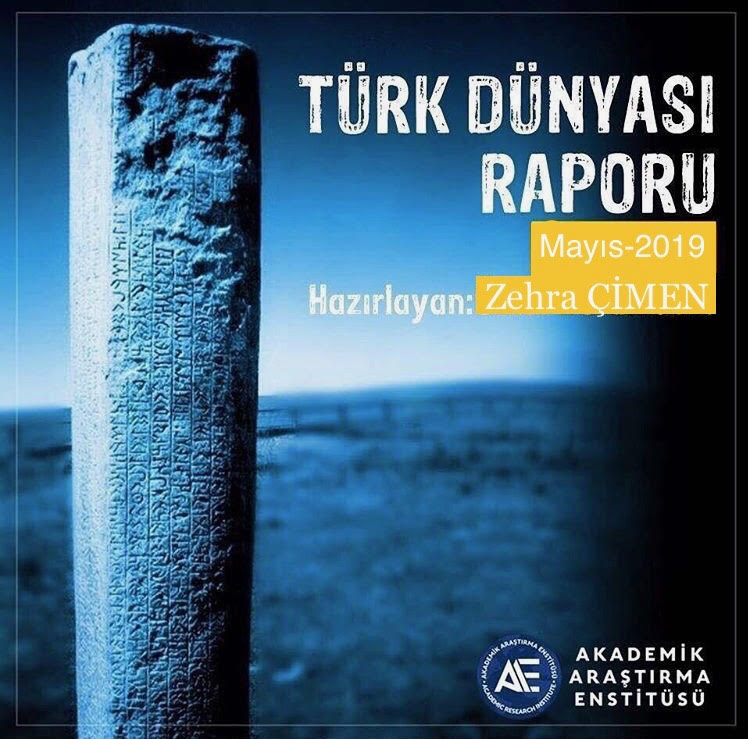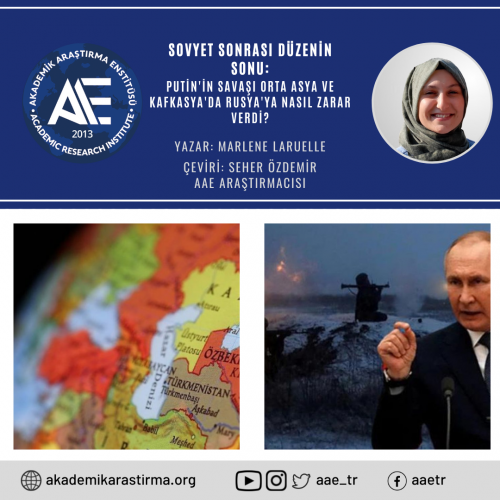
The Pre-Accession Talks of the Balkan States with the European Union Case of Bosnia and Herzegovina
List of Abbreviations
EFTA: European Free Trade Association
EU: European Union
BiH: Bosnia and Herzegovina
IPA: Instrument for Pre-Accession Assistance
ISIS: Islamic State of Iraq and the Levant
NATO: North Atlantic Treatment Organization
SAA: The Stabilization and Association Agreement
Abstract
The EU and BiH can get closer. There some issues that can help to process. Firstly, Bosnian are leaving from country to Europe. Especially young generation it is kind of brain drain. Before going to be membership BiH has to develop and there is need to young generation. Secondly, it can be some policy about the education and work conditions for to prevent it. The EU can get more active role on the parties rule for help to deals. Thirdly, it can be highlighted the common interests. Which is also happened in the EU for starting point. The common interests can be on the energy, single market, economy, security in each country and against Russia it means defense policy, work and better conditions for life.
Key Words: Common Interests, EU Enlargement, Balkans, Security Problem
- Introduction
Having stabilization, good economy, peace and security are the most important case for the EU. The EU tries to have this conditions since when it established. Therefore there is need to have good neighbors and relationship. There was bloody battle in the Balkans and it is effected to the Europe. There is risk because it can battle again and the EU wants to prevent it. For this reason the best solution is get the Balkans to the EU closer by membership. The study will focus on the BiH and EU conditions and how relations can get closer.
The hypothesis is BiH and EU for get closer to the each other, can focus on the common interests mostly and we will follow deductive formation. The study will answer these research questions: Why BiH is slowly on the progress? What is the main problems? How can it be solve? How it can be on the future? For explain those there are four chapters, first chapter focus on The History of the Enlargement the EU, second chapter about Balkans and the European Union Relationship, third one is Briefly the History of BiH and last one is about BiH Relationship with the EU in this chapter we will see the timeline of BiH to the EU and what can happen for getting closer to the EU. At the end of the study we will discuss, effect of Dayton Agreement, education process and common interests between BiH and the EU.
- Theoretical framework
European integration theories are focus on the widening and enlargement process. The case of BiH’s accession process can be explained by liberal intergovernmentalism due to the aim is EU integration in this theory. It was dominant during the 1990s. The forefather is Andrew Moravcsik. According to this theory, states are the main actors. But it doesn’t mean only about national security. Strategic bargaining between the states, economy and interests have big attention[1] (Turhan’s note, 2018). EU’s institutions have many interests and decision making must be on it. The interests should protect to commitments. EU has been looking to BiH for security interests and BiH has been looking to EU for economic and security issues.
In this article, qualitative methods and especially theoretical approach will be used for understanding and explaining correlations the pre-accession talks of the Balkan States with the EU Case of BiH. Throughout the study, EU and BiH are the main actors. The independent variable is EU and dependent variable is BiH in this case.
- History of the Enlargement European Union
The two great world wars have caused huge damage to Europe: thousands of people including soldiers and civilians, the health care was low, there was economic crisis, people suffered from food shortages, they could not continue their education, they had to change their homes-cities, and they were ruined both mentally and emotionally. Europeans wanted to have stability, democratic peace and welfare life. For that, it has to be economic agreement between the states in 1951. According to Schuman Declaration, Europeans created to Treaty Establishing the European Coal and Steel Community and safe it. Then economic growth happened. At the same time territory is changed. It is include Mediterranean, Baltic Sea, and Atlantic to Black Sea.
The EU need to enlargement for having good welfare continent. Therefore provide that there are thirty five chapters of the EU and some of them are related with the stabilization, security, energy, justice, economy, politic and law. It’s hard to provide all of them at the same time for that there is need to have union and enlargement process. All candidate countries before becoming to member states have to do some gradual reform.
There are seven steps for enlargement of the EU: “1973 Denmark, Ireland and the United Kingdom; 1981 Greece; 1986 Portugal and Spain; 1995 Austria, Finland and Sweden; 2004 The Greek Administration of Southern Cyprus, The Czech Republic, Estonia, Hungary, Latvia, Lithuania, Malta, Poland, Slovakia and Slovenia; 2007 Bulgaria and Romania; 2013 Croatia.” (Ministry, 2017). Now there are 27 countries (after the Brexit) in the Union Also there are many candidate countries too. Albania, Montenegro, Macedonia, Serbia and Turkey. Potential countries are BiH and Kosovo. Basically we can divide Northern enlargement; Mediterranean enlargement; Eastern enlargement; Norway, Iceland, Liechtenstein, Switzerland (EFTA states) enlargement and Balkans enlargement. Every state apply to the EU firstly, the key point is they wanted to enjoy and then accepted. “Each enlargement round has been characterized by an asymmetrical relationship between member states and the countries wishing to join, the internal adaptation of the EU to cope with a larger membership, and differing national preferences amongst member states.” (Cini, Perez and Borragan, 2013, p. 229).
- Balkans and European Union Relationship
Balkan countries are so close to European countries both are in the same continent. They share similar culture, history and religion except BiH. Therefore the EU is thinking about them positively. For example compared to Turkey, Balkans have more possibility to have membership the EU. Turkey has more population it means need more many situation, it has most of refugees it means security problem, it has different religion it means there is no similar culture and so son but when we look at the Balkans we can see most of common issues it means integration will be faster and also it can be common interests. This countries had most of war and effected a lot. This situation also effected to European countries about security, economy and politically. When we look to case from Europe side, they want to have stabilization on the continent without problems. Accordingly, Balkans must be member after that it will be more peace in the area. “Much more effective and cheaper to keep these countries on track by offering them the accession process than to run international protectorates and military occupation in the region.” (Cini, Perez and Borragan, 2013, p. 231).
The idea became to mind after the Kosovo crisis in 1999. After the Yugoslavia collapse, Serbian people attacked to Kosovo and NATO step in a then won it. After all the EU realized Balkans are important for to have peaceful area then Stabilization and Association Process is emerged and signed. The process’s aim was about good economy, free market area and stabilization. After all membership idea is emerged consequently, Montenegro, Serbia, Macedonia, Croatia, BiH and Albania have been applied. President of the European Commission Jean Claude Juncker highlight the case: “If we want more stability in our neighborhood, then we must also maintain a credible enlargement perspective for the Western Balkans. It is clear that there will be no further enlargement during the mandate of this Commission and this Parliament. No candidate is ready. But thereafter the EU will be greater than 27 in number. Accession candidates must give the rule of law, justice and fundamental rights utmost priority in the negotiations.” (Commission, 2018, p.1).
But before becoming member they must agree in each other. After the collapse of Yugoslavia, Balkan countries have problem between each other especially about borders, nationality and bad economy. When we take the case of Bulgaria and Romania, they were not ready to be member of the EU economy, justice, freedom, security, fundamental rights were bad but they were accepted and new crises happened in the EU. The other countries didn’t want to pay for them much more and Britain use this argue for the Brexit. Therefore the EU doesn’t want to have the same mistake again. There is another big question. It is about the capacity of the EU. “…absorption capacity of the Union, has also become more salient as new member states have joined to the EU, and commitment for enlargement among member states and citizens has waned.” (Cini, Perez and Borragan, 2013, p. 232). If the EU can’t get to absorb Union can disintegration.
Now, the key point is Copenhagen Criteria for every candidate countries. Copenhagen Criteria is focusing to the basic points. Such as political area, democracy, fundamental rights, justice, rule of law economic area, management area and so on. The candidate countries have to try to have this conditions before to be membership of the EU.
- Briefly the History of Bosnia and Herzegovina
The most interesting thing about BiH is, there are Muslim groups in the region. Before, they were Bogomils. According to Catholics, this belief was wrong and before the Turks conquest, they had some problem with Bogomils. After the Ottoman Empire Bogomils became a Muslim because there are some similarities. Subsequently, culture was changed, many architectural achievement were built, libraries, schools were opened and so on. BiH was so important for Ottoman. It was a kind of bridge to Europe and other cultures for that and being Muslim region, were the main reasons for Ottoman to take care of BiH. Nevertheless the Empire was losing the power and there were some economic problems. Therefore Ottoman had to give BiH to Austria Hungary. “Austria Hungry was authorized by the congress to ‘occupy and administer’ BiH (but not annex it) in the interests of civilization and in compensation for the spread of Russian influence in the Balkans.” (Palmer and Colton, 1992, p.659).
Before the Austria Hungry, It means last years of Ottoman, the region was a conflict area between Pan-Germanism, Pan-Slavism, and Ottoman because of the geopolitics, religion and identity for example, “…Serb and Croat nationalists, Orthodox and Muslims clerics all considered as behind the secular times. But in BiH, as elsewhere, centralizing initiatives such as interconfessional education were costly and run up against divisions between modernizers and traditionalists with in each religious group.” (Burbank and Cooper, 2010, p.362-363).
It was near to other countries and the countries wanted to have hegemony on that and they use the religion power. Serbia influenced to Orthodox, Vienna influenced to Catholics and Sultan influenced to Muslims by jihad. Consequently, the area had conflict and then Prince Francis Ferdinand is dead by Serbians nationalist in Sarajevo and this situation created World War I.
As a result of World War I, the Yugoslavia was established after the dismemberment of Austria Hungry. Emerged the region of unification by Slovenia, Croatia-Slovenia, Dalmatia (the region of Croatia now) and BiH (Hayes and Moon, 1938, p. 766). “This unification was influenced by the character of the war, the policy of the Entente with regard to the Habsburg monarchy and the Eastern Question, the role that Serbia played in the camp of the victorious Allies, the activity of the Yugoslav Committee and the military results on the battlefield.” (Djordjevic, 1992, p.309-310).
When World War II was started, Germany attacked to the Yugoslavia and won it. Yugoslavia was devided by Hitler to Hungry, Bulgaria and Italy but when the War is finished, it has established again. Tito and Mihaliovic had the big effect on the country and in the time they wanted to be leader after the 1941 they started to have quarrel each other (Kenar, 2005, p.64). During the World War II, Yugoslavia already had a war in itself. Republic of Democratic Federal Yugoslavia was established and Tito became a leader he was effecte by Soviets. Firstly it was nice to have help but after that the country felt they were becaming under Soviets. Relationship became bad. After Tito distintegration was started betwen 1980 – 1990. Somehow, there were some reasons for the crumble. Such as cultural issues, multinationalism, race of nationalism, leaving of Slovenia, crumble of communism, bad economy, leaving of Croatia, dilemma on the Balkans by Europe and United States (Gökdağ and Karatay, 2013, p. 34-48). By this reasons Yugoslavia was disintegrated in 1992. And new six countries emerged. They are now: BiH, Montenegro, Serbia, Albenia, Macedonia, Slovenia and Croatia.
There were three population in BiH Croatian, Serbian and Muslims. Therefore the situtation is more complex then others because of some problems (Kenar, 2005). Serbians forced to BiH mostly, Muslims became a problem. For this reasons, BiH had an election and established to Republic of Bosnia Herzegovina in 1 March 1992 and first president was Alija Izetbegovic.
- Bosnia and Herzegovina Relationship with the European Union
When we focus of the BiH case, it has been applied to the EU in 2003 for membership and: “Since then, a number of agreements between the EU and Bosnia and Herzegovina have entered into force – visa facilitation and readmission agreements (2008), Interim Agreement on Trade and Trade-related issues (2008). SAA has been ratified and entered into force on 1 June 2015.” (Commission, European Neighbourhood Policy And Enlargement Negotiations Bosnia and Herzegovina, 2017). As we can see from the process stabilization, economy and integration are highlighted firstly. Due to having for good economic conditions in the area it can be provide by this issues, and integration will be more. Integration is the big case in the EU. Everyone has own nationality but at the same time, everyone has to show respect to the minorities and other nationalities. So, doing by these agreement also aim was the have a good integration. Now we can take the case of BiH process with the EU.
- Timeline of Bosnia and Herzegovina
Here is the timeline of BiH to the EU process. Firstly, it is an environmental policy by the EU. All is intensify the integration by using the economy, single market, visa facilitation, common policy, security and so on. The aim is before becoming to a real member of the EU, the problems must be done.
“2005-SAA negotiations officially opened in Sarajevo
2007- Visa facilitation and readmission agreements signed
2007- EU initials Stabilization and Association Agreement
2008- Visa facilitation and readmission agreements enter into force
2008- Council adopts new European partnership
2008- Stabilization and Association Agreement and Interim Agreement on trade and trade-related issues signed
2008- Interim Agreement on trade and trade-related issues enters into force
2008- Bosnia and Herzegovina & EU sign financing agreement for the IPA 2007 National Program
2010- Commission adopts proposal allowing citizens of Albania & BiH to travel to Schengen countries without a short-term visa
2010- Visa free regime for Schengen area introduced for all BiH citizens having a biometric passport
2011- Delegation of the EU and Office of the EU Special Representative become one reinforced the EU presence
2012- The EU and Bosnia and Herzegovina launched the High Level Dialogue on the Accession Process
2015- The SAA with Bosnia and Herzegovina enters into force
2016- BiH submits its application to join the EU
2016- The EU Council invites the Commission to present an Opinion on BiH application.” (Commission, European Neighbourhood Policy And Enlargement Negotiations Bosnia and Herzegovina, 2017).
- For Getting Closer to the European Union
According to timeline, both side are trying to have this social adoption. But as we know before, there three different ethnic groups and each group has different own interests, populism is effected on this case. Nowadays we watch the rise of populism in the World and Europe too. When we look at today’s world we can see populist leaders and parties as Trump, Putin, Syriza, Podemos. America does what he wants and other countries have the same situation also. So, it can be effect to BiH mostly. On the other hand Dayton Peace Agreement does effect on the process too. Which is signed by three ethnic group’s leaders for peace in 1995, in America. In the time it has been shown us, it does support to nationalistic approach and the groups are not happy with this deal and mostly (Dalar, 2008, p.16). Owing to BiH is slowly than other candidate countries. So, as a solution the agreement can change for safe to all groups.
The other case is religion. There is a Muslim group in BiH and the all the EU members are Christian. After the terrorist attack in US in 2011, ISIS has most of terrorist attack too by that reasons islamophobia is increased by using the media and populist issues help it. Besides after the immigration crisis, Europe has more Muslim than before and it is rising. This is the big social problem in the society and the leaders do more polemic on it because there is no communication and integration between both sides. Europe must face with this religion problem. BiH doesn’t have this issue yet but when they have the last steps, Islam can be a problem as which is happened in Turkey. For overcome it, religion can stay in the behind the negotiations. People can have religion life in personality as an example of Germany. Most of Turkish people live in Germany since a long time and they don’t have so much complex. German laws are useful on the case: “German Basic Law guarantees the freedom of religious creed, the freedom of ideological creed and the freedom of private and public religious practice.” (Potz and Wieshaider, 2004, p.43).
There some other issues. Firstly, Bosnian are leaving from country to Europe. Especially young generation it is kind of brain drain. Before going to be membership BiH has to develop and there is need to young generation. Secondly, it can be some policy about the education and work conditions for to prevent it. The EU can get more active role on the parties rule for help to deals. Thirdly, it can be highlighted the common interests. Which is also happened in the EU for starting point. The common interests can be on the energy, single market, economy, security in each country and against Russia it means defense policy, work and better conditions for life.
- Conclusion
For to have good conditions of the EU, it must be enlargement and stabilization. Thus, the EU follows enlargement policy since a long time. Balkan countries one of them the process. The EU wants to have negotiations for get them in the Union. Balkans also want to be membership too. However the countries have to follow some process before get the membership and get problems solve, because the EU has bad experience such as Bulgaria and Romania. Balkans do follow the issues but BiH goes slowly. There are some problems. For instance the most important one is Dayton Peace Agreements. It must be change because it effects the ethnic groups as a nationality this is the problem for justice and integration. The EU should take the effective role in here. Other reason is the brain drain. BiH can’t develop without young generation, for a solution education conditions are must be change and also work conditions. There is need to have reforms in this part. Other is it can be prospective problem on the Muslims on the last steps, which is happened with Turkey. There is no problem yet about Islam but it can be and already need to take decisions on it. The EU can have the policy as Germany. Which is showing us religion is the second issue, everyone can have religious own personal life. The last thing is, for to have good negotiations, the both side must focus on the common interests as economy, welfare, security, freedom and so on. Consequently, BiH can get closer to the EU.
References
Affairs, M. o. (2017, 12 13). History of the Enlargement. Ankara , Çankaya, Türkiye.
Burbank, J., & Cooper, F. (2010). Empires in World History. Princeton: Princeton University Press .
Cini, M., Perez, N., & Borragan, S. (2013). European Union Politics. Oxford: Oxford University Press.
Commission, E. (2017, 11 22). European Neighbourhood Policy And Enlargement Negotiations Bosnia and Herzegovina. Retrieved from European Commission: https://ec.europa.eu/neighbourhood-enlargement/countries/detailed-country-information/bosnia-herzegovina_en (I accessed 27.12.2018)
Commission, E. (2018, 02 06). European Commission. Retrieved from European Neighbourhood Policy And Enlargement Negotiations: https://ec.europa.eu/commission/sites/beta-political/files/communication-credible-enlargement-perspective-western-balkans_en.pdf (I accessed 26.12.2018)
Dalar, M. (2008). Dayton Barış Antlaşması ve Bosna Hersek’in Geleceği. Sosyal Bilimler Enstitüsü Dergisi, 106.
Djordjevic, D. (1992). The Yugoslav Phenomenon. In J. Held, The Columbia History of Eastern Europe in the Twentieth Century (pp. 306-344). Columbia: Columbia University Press.
Gökdağ, B. A., & Karatay, O. (2013). Balkanlar El Kitabı. Ankara: Akçağ Yayınları.
Hayes, C. J., & Moon, P. T. (1938). Modern History. Columbia: the Macmillan Company.
Kenar, N. (2005). Yugoslavya. Ankara: Palme Yayıncılık.
Palmer, R., & Colton, J. (1992). A History of the Modern World Since 1815. Jeferson: Von Hoffmann Press.
Potz, R., & Wieshaider, W. (2004). Islam and European Union. Leuven: Peeters.
Turhan, E. Liberal Intergovernmentalism. Slides of Theories of International Relations and European Integration Lecture.
[1] Turkish German University, Notes from the Lecture of: Theories of International Relations and European Integration, Ebru Turhan-Deniz Kuru, 2018.

Türkmeneli Raporu

AAE TÜRK DÜNYASI RAPORU Mayıs-2019
Bunları da beğenebilirsiniz

Sovyet Sonrası Düzenin Sonu
24 Ekim 2022
Türk Dünyası Raporu Aralık 2022
13 Ocak 2023
